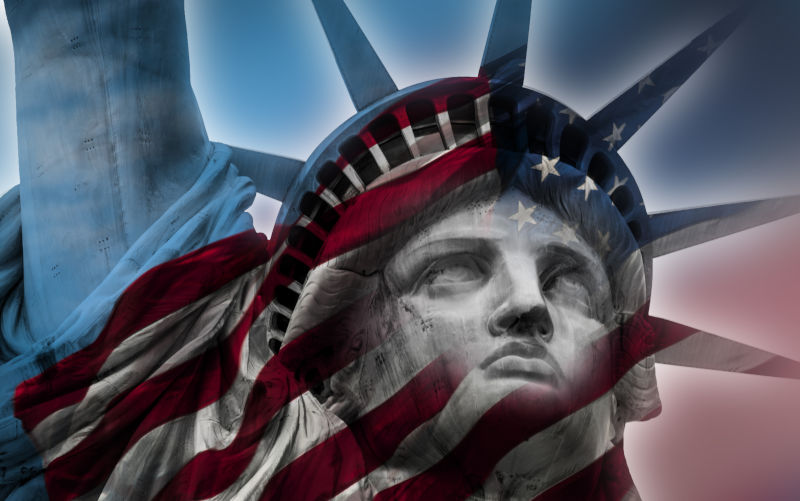Oh the weaponising: another symptom of decline
July 3, 2023
Weaponise is the word de jour in America. Aside from the crude partisan employment of the term by Trump and other American politicians, it has subtly found its way into mainstream publications. Such loaded terms corrupt analysis by imposing implicit judgements that obviate the need for serious thought. Once condemned for weaponising, it cannot then be conceded that the target of the accusation can have legitimate reasons for their actions.
At the initiation of the US House Select Subcommittee on the Weaponization of the Federal Government (its real name), Chairman Jim Jordan announced We expect to hear from Americans who have been targeted by their government. Not whether they were targeted. The guilt is established in the terms of reference and only the evidence needs to be found now.
Following Trumps indictment over the handling of classified material, Kevin McCarthy, Speaker of the House of Representatives said Republicans will hold this brazen weaponization of power accountable. McCarthy clearly expects the designation of the case as weaponisation as sufficient to exonerate Trump without recourse to a trial.
The ease with which this artefact of lazy thinking has entered the policy discourse is a matter for concern. It is a problem that goes beyond simple domestic matters. A recent book review highlights the distortion this loaded-term can bring to what purports to be from an authoritative academic source, and how an unreflective use of history can be itself weaponised to disguise what is in fact a political critique.
Mary Gallagher, notably Professor in Democracy, Democratisation, and Human Rights at the University of Michigan, recently reviewed Tania Branigans Red Memory: The Afterlives of Chinas Cultural Revolution for Foreign Affairs magazine. Her review article was titled Chinas Rewritten Past: How the Communist Party Weaponises History, giving a clear intimation that it was not likely to be China friendly.
In the larger context Gallaghers article is characteristic of much literature on China. While there is no questioning her professional expertise in Chinese politics or the factual content she brings to her review, the presentation is clearly skewed toward an unflattering and critical impression of President Xi and the CCP. To put it another way, Gallagher weaponises history to condemn Xi.
That the Cultural Revolution in China was a violent and tragic time for the Chinese caught up in it is incontestable. The unrelenting campaign by the Chinese Communist Party to bend and twist peoples recollections into whatever shapes best suit the CCP in the present is well documented. The stories of those who lived through that era and still recall the betrayals and crimes they were either party to or suffered from are important. The memories are horrific. Current scholarship also reveals the the pivotal role of political elites who skilfully manipulated students and workersand that party elites manipulated student leaders and actively directed the violence throughout the Cultural Revolution.
That Xi has a version of the Cultural Revolution that is shaped by his own experiences and that of his family is also not surprising. What leader doesnt filter their past through their current circumstances? Nor is the fact as the leader of the nation he presents the passage through those terrible times as an uplifting tale of struggle and resilience. Or that thehardship he suffered was edifying, an education in manhood that Xi wishes for todays youth. Gallaghers accusation is that It is a tragedy unto itself that the CCPs selective history blames the people while largely exonerating the party.
The insidiousness in the article lies in the reproach of Xi and his colleagues for a manipulation of history that is seen in governments of all persuasions. Conveniently the dark periods buried in the histories of western nations and friends or allies is overlooked when weighing Chinas sins. In hindsight the Cultural Revolution appears a wilful and vicious terror in which millions died unnecessarily and others were incited to perform horrendous acts; family members died after being accused of being counterrevolutionaries and officials and teachers assaulted and sometimes murdered by those they served. But considered in isolation it is a weaponisation of a book review.
All nations have gone through dark periods that their governments prefer to avoid acknowledging. Notably in the US teaching race history and the legacy of slavery currently is being actively repressed in a number of states. The examination of the violence of the French resistance to Algerian independence is avoided by the political elite. Britain strived to cover up what amounted to an attempt at genocide in Kenya.
The appalling murderous and genocidal pogroms carried out by the Poles, Russians, and Ukrainians between the world wars, and which resulted in the deaths of over a million Jews, rival Chinas Cultural Revolution in horror and depravity but are suppressed in public discussion now. A sound academically based review of Branigans work might have looked at its contribution to understanding a broader phenomenon of memory repression and deliberate forgetfulness by ruling elites.
As in Gallaghers title, use of the verb ‘weaponisation’ carries with it the certainty that the employment of whatever power or information is being referred to is known in advance to be a misuse. Weaponisation never refers to an innocent activity. Those who throw terms like weaponisation at people seem to think that no other possible explanation could exists for the motivation of their targets other than the worst conceivable one.
Application of the term precludes the need for further analysis, no need for reflection. In the mouths of people who purport to speak with authority and expertise guilt is presumptively accorded. The result is that the legal and legislative institutions that buttress American democracy and assure fairness and equality for its citizens are harmed and public confidence in them undermined. The political discourse is also diminished and degraded. Alarming symptoms of a failing democracy.

